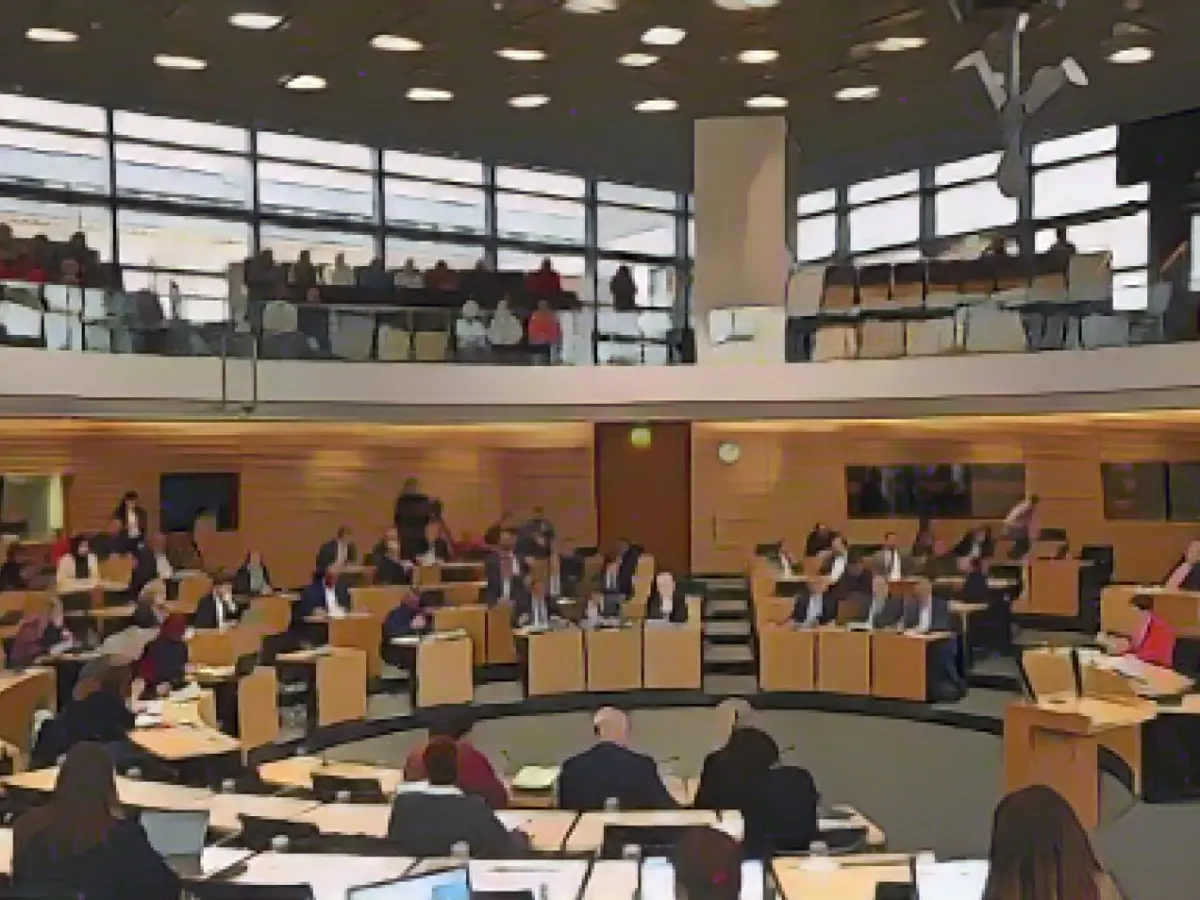Thuringia's CDU Stirs Debate with Proposed Return Centers for Refugees
The Christian Democrats in Thuringia are paving the way for debates with their plan to build housings for refugees with slim chances of settling in the region, inspired by Bavaria's anchor centers. This choice will be discussed in the Thuringian state parliament on Thursday at 9:00 a.m. The Left, SPD, and Greens have voiced their objections, but the CDU stays resolute in their decision.
The CDU's Ideal
The CDU envisions accommodating refugees for up to two years in these facilities, sidestepping their initial distribution to Thuringia's municipalities. The objective is to smooth out the process of identifying and addressing refugees with minimal prospects of staying in Thuringia.
The Controversial Plan
Skeptics claim that the plan might breach human rights by prioritizing repatriation over integration and putting refugees in danger in their native lands. Some perceive the centers as ethically and morally dubious, likened to "warehousing" or "processing" refugees instead of integrating them fairly.
Points for and against the Plan
Backers might argue that the model fosters efficiency, enhancing immigration case management. It also helps allocate resources more effectively by focusing on those who have better chances of integrating into the local community. Moreover, they contend that the plan supports public safety due to its potential to identify threats within the Thuringian community.
On the contrary, critics introduce various issues. Firstly, the plan could violate human rights and encroach upon refugee protection. Organizations like Amnesty International have highlighted risks in countries with fewer asylum opportunities, such as extrajudicial executions and torture. Secondly, the plan's ethics and morals are questionable to many, seen as an aggressive tactic in addressing refugee issues rather than welcoming and integrating migrants.
Moreover, the proposal may face political and social repercussions and legal challenges, possibly stirring opposition from multiple parties and civic organizations. Local communities, political factions, and people in Thuringia may voice their positions pro or con this controversial proposal.
In the end, the CDU's proposal to create return centers for refugees with low chances of staying in Thuringia faces a range of arguments and viewpoints. The heart of the debate revolves around efficiency, resource allocation, public safety, and human rights. The proposal has garnered both support and criticism—an intricate mosaic that shapes Thuringia's refugee policies.
While discussing policies like these, it's crucial to consider the following factors:
Efficiency and Streamlining
By identifying refugees swiftly, the plan could promote an organized immigration process. This would result in a more efficient handling of cases.
Resource Allocation
The initiative enables the smart allocation of resources, ensuring that they are targeted toward refugees with a higher chance of integrating into their local communities.
Public Safety
Some argue that this strategy might contribute to public safety by eliminating potential dangers in the Thuringian community.
Human Rights Concerns
The proposition may infringe upon human rights, even putting refugees at risk in their home countries. Organizations like Amnesty International have previously expressed concerns over such policies, such as threats like extrajudicial executions and torture.
Ethical and Moral Implications
The questionable ethics and morality of repatriation centers might provoke controversy, as some view them as an aggressive approach to refugee concerns instead of welcoming and integrating immigrants.
Political and Social Backlash
The proposition could face significant political and social resistance, including oppositions from multiple parties and civic organizations, which may exacerbate existing social tensions.
Legal Challenges
The proposal might face legal challenges due to conflicts with Germany's constitution and international obligations, particularly concerning asylum seekers' rights.








